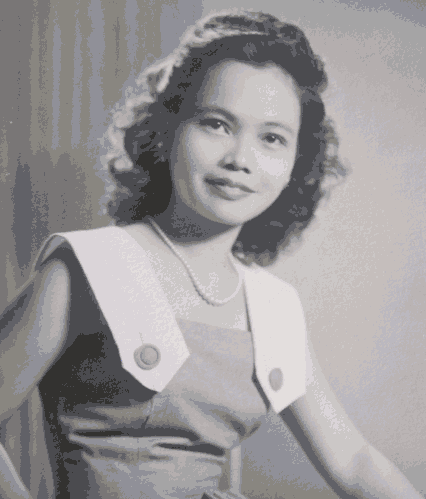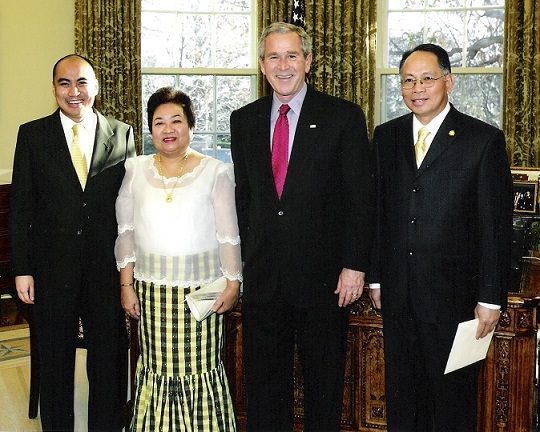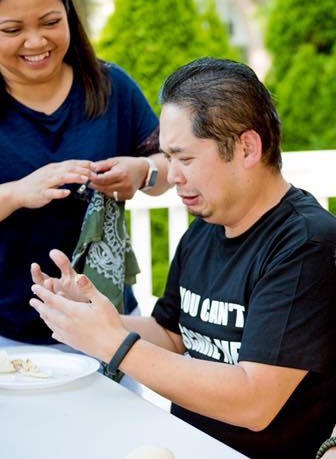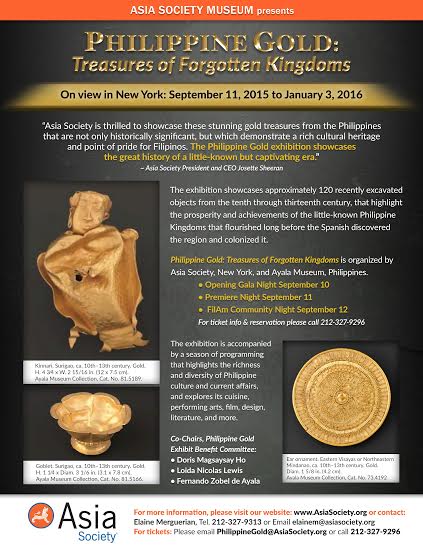Geena Rocero’s Gender Proud is now both a non-profit and a business entity

Transgender model and advocate Geena Rocero: ‘We have not deceived, manipulated or misrepresented our activities.’
Gender Proud, the non-profit organization founded by transgender model Geena Rocero in 2014 as a vehicle for her gender marker advocacy, is now also a business entity.
Rocero and colleague Allison Hoffman announced the creation of Gender Proud Productions LLC (GPP) as a media production company that may develop products like films, videos and photo exhibits.
“(It is) completely separate entity from any and all of our non-profit activities. No donations have ever been, or would ever be, solicited via GP Productions LLC,” they said in a statement.
The timing of the registration was curious. GPP was registered on July 28, 2015. Around that time, Rocero was being assaulted online with questions about the legitimacy of Gender Proud and its supposed “lack of transparency and oversight.”
A Facebook user by the name of Miyako Izabel is one of her detractors. “I’m just a scribe,” she told The FilAm. “I write bravely.”
Miyako Izabel has posted numerous information to support her idea that the organization she calls “Gender Fraud” is “neither tax-exempt nor Internal Revenue Services (IRS) 501c3 compliant… That means the organization is problematic and questionable.”
Gender Proud, founded in 2014 after Rocero came out on TED Talks as a transgender model from the Philippines, is still “very new,” said non-profit professional Venessa Manzano, who is the founder of The Filipino School of New York/New Jersey. It’s possible, she said, that the organization is still “configuring” its final shape. This process could take at least three years in many non-profits, she said.
“Maybe they are not yet ready to answer all the questions the public may have,” she added, indicating it does not necessarily imply lack of transparency.
However, Manzano found odd GP’s creation of a production company as a limited liability corporation.
“Usually, it’s the other way around,” she said. “It’s businesses that create foundations that support whatever programs they have.”
Lawyer Randy Gonzales, who has worked with
non-profit organizations, such as UniPro, says non-profit organizations may form for-profit subsidiary organizations and vice versa. Also, individuals may start a non-profit and also a business entity. In either case, it’s permissible “as long as the entities are truly separate and independent from each other.”An organization, he added, needs to have a structure, a set of officers, board members and bylaws.
Gender Proud states that the organization is not a 501 C 3 tax-exempt organization because of the “small size of our organization.” It identifies Rocero and Hoffman as its founders. The advisers are Marianne Mollmann, director of programs at the International Gay and Lesbian Human Rights Commission, Andre Banks, founder of AllOut; and Richard Socarides, head of Public Affairs at Gerson Lehrman Group who served as White House Special Assistant and Senior Advisor to former President Clinton.
“It does not make sense to register it as a 501 C 3 tax- exempt non-profit in the United States,” it says in its statement.
Instead, GP “made the decision in mid-2014 to obtain fiscal sponsorship via an organization called Women Make Movies…Under Women Make Movies, all donations to Gender Proud are tax-exempt, and fully accounted for. Since we began working with them, we’ve received two substantial donations: one… from the Arcus Foundation. The second was from the Human Rights Campaign.”
For GP’s advocacy work, Arcus offered a $50,000-matching grant. As explained in the statement, “We received the first half, and then we have to raise the second half by the end of 2015, in order to activate the second half.”
Human Rights Campaign also made a donation, but Hoffman told The FilAm she could not disclose the amount until she has received permission from HRC.
Arcus and HRC funded GP’s “3-city project” in May as Rocero travelled to Cebu, Vigan and Quezon, hosting a series of seminars and workshops advocating for greater LGBT rights in the Philippines.
Some in the trans community questioned the propriety of allocating foreign money to a project that is based mostly in the Philippines.
Manzano sees nothing wrong with that.
“It’s just like ARK (or the Advancement for Rural Kids),” she said. “Much of the fundraising is done here in the U.S. but the programs are in the Philippines.”
Hoffman clarified what appears to be the dual nature of Gender Proud. She said GP remains a non-profit. She and Rocero established GPP as a “legal structure that allows for greater degree transparency and accountability.”
For example, GP, the non-profit, can advance advocacy campaigns using contributions from foundations, like Arcus and HRC. At the same time, GPP can develop media products, say a documentary, that would allow them to generate some returns.
“It allows us to work with an array of partners,” she said. “There would be no confusion.” Most importantly, they report separately to the IRS.
Its registration with the New York State Department of State shows Allison Hoffman to be the Registered Agent for GPP.
Who is Allison Hoffman?
Hoffman has worked in the areas of art, activism and media from the time she moved to Cambodia at age 21 to start a social enterprise called The Pari Project. While in Cambodia, she organized a series of TEDx events. She returned to New York after seven years to launch a career in social issue media, and met Geena in December of 2013.
“I don’t see anything improper about Ms. Hoffman being the Registered Agent,” said Gonzales. The idea, he continued, is that a non-profit organization is not supposed to be controlling the activities of the for-profit entity. “You really should not intermingle the two, the nonprofit and the for-profit company.”
Being only two weeks old, Hoffman said GPP is still working on its structure and set of officers.
Discard the production company!
Miyako Izabel urged Rocero to get rid of Gender Proud Productions, LLC, making a point that “your goal is to be a transgender advocate not a businesswoman who makes money out of her advocacy.”
She further called on Rocero to “define your function and job description so your supporters and funders will know what you have been doing,” and to “be wise when you spend the donated funds.”
For asking tough, incisive questions, Miyako Izabel garnered praise from a segment of the trans community, as well as angry comments directed at Rocero. One comment comes from a trans woman from the West Coast.
“Kaloka si Geena. She should explain if she’s not hiding anything anomalous,” said the woman.
Hoffman said that in the future, GP would try to do a “better job of communicating” how each of the entities operates.
For now, she said, “We can safely say that there is never a dollar misspent, never a dollar unaccounted for, and not an ounce of fraud within the organization.”













